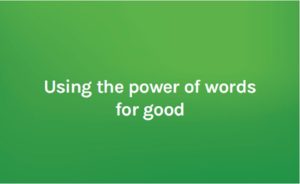The post Winners announced in 2019 People’s Choice Awards appeared first on Plain English Awards.
]]>Winners in the 14th annual People’s Choice Awards were announced by Awards media partner Newsroom last week. The People’s Choice Awards recognise the best and worst in government and corporate communications, nominated anonymously by members of the public.
Accuro Health Insurance comes out tops
The award for the People’s Choice — Best Plain English Communication goes to Accuro Health Insurance for their website.
See the official announcement on the Newsroom website
The person who nominated this website said:
It’s a beautifully clear, simple website. I found it clear and logical.
The international panel of judges said about this entry:
This website is a very good example of plain English used to support a business to communicate clearly and in an engaging way with as many New Zealand residents and citizens as possible. I’d expect it to have a positive impact on sales to new customers and existing customer retention and engagement.
This is a very strong site. It gives a great first impression, drawing the reader in from the start. This is then followed up by concise and engaging content, and a simple-to-navigate layout that makes it easy for readers to find and do what they need to.
[Accuro has] done a good job creating a user experience that is clear and helpful, which is refreshing for an insurance organisation.

Lawyer, comedian and Awards MC James Elliott announced winners on the Newsroom website.
Bad news for Auckland Council
The award for the People’s Choice — Worst Brainstrain Communication goes to Auckland Council for its Proposed Plan Change letter.
See the official announcement on the Newsroom website
The person who nominated this document said:
A good friend of mine came in waving her [copy of this letter] at me, saying she had a Master’s degree in English and couldn’t understand a word of it.
The international panel of judges said about this entry:
This document is very difficult to understand, which disturbs me because it seems very important for landowners. Also, the writer portrays the content as unimportant, but I don’t think it is so, and this makes me suspicious.
The council is trying to bring a planning change to the attention of its ratepayers and residents. But it has failed miserably to think about how to get that message across in plain language. [The letter] appears to be written for people who understand council processes, not for those who will be most affected by the change.
The third component of this communication is already written in plain language, so the skills to write the rest in plain language exist. This is poor performance for a very important matter, and a huge opportunity missed. Many residents were frustrated by this communication.
New Zealanders continue to benefit after 14 years
The People’s Choice Awards are held each year and form part of the Plain English Awards. The full Plain English Awards are held every second year. Entries for the 2020 Plain English Awards will open at the end of March 2020.
After 14 years of Awards, New Zealanders continue to reap the benefits of business and government using clear communication to engage with their clients, consumers, and customers. The Awards reinforce the element of care that lies behind reader-focused communications.
Awards founder (and CE of plain language consultancy Write Limited) Lynda Harris said care is one of the qualities associated with plain English that’s closest to her heart.
People who choose to communicate in plain English do, by definition, care about their readers. They put the needs of their readers first as they think and write. They care about people, impact, and outcomes.
Awards sponsors
Sponsors for this year’s Awards included WriteMark, Write Limited, Wright Family Foundation, Graphic Solutions, Newsroom, printing.com, MoneyHub, and Consumer NZ.
Other sponsors, whose contributions to the Awards were invaluable, are Editor Software (United Kingdom), JUNO Investing Magazine, and Kendons.
Find out more
See Newsroom’s official announcement of this year’s winners
Read what our winners and finalists had to say on our winners page
For more information, contact:
Gregory Fortuin, Chair, WriteMark Plain English Awards Trust
021 465 254
The post Winners announced in 2019 People’s Choice Awards appeared first on Plain English Awards.
]]>The post Brainstrain or Best — prizes for all in the People’s Choice Awards appeared first on Plain English Awards.
]]>Awards media partner Newsroom will announce the winners of this year’s People’s Choice Awards on Thursday, 28 November.
We can’t wait to find out which of our finalists have come out tops. And we’re very excited to have the support of Newsroom to help us spread the word.
James Elliott — our fabulous and funny MC at Awards presentations for the last 5 years — is continuing his support for plain language by being our star announcer.
All sorts of goodies await the winner of the Best Plain English Communication
We know our judges have been thinking long and hard about which of the top four nominations in their category deserves to win. What can the finalists, all supported by members of the public, look forward to if they win?
First of all, we’re pretty sure they’ll be celebrating their award, knowing that their communication has had a positive impact in the world.
As well, thanks to our wonderful sponsors, the winner will walk away with some fabulous prizes.
They’ll be thrilled to receive the iconic trophy in steel and bronze by Wellington sculptor Campbell Maud. They’ll enjoy using the latest StyleWriter plain English editing software from Editor Software to craft future documents.
And we think they’ll be excited to extend their skills with a place on any of Write Limited’s 1-day open workshops.
A little bit of fun for our Brainstrain winner
Our Brainstrain judges are all industry experts and take their roles very seriously. Even so, we always present the Brainstrain Award with good humour. That’s why the winner of the Worst Brainstrain Communication gets the famous Brainstrain rubbish bin filled with sour worms.

Who’ll win the notorious rubbish bin full of sour worms this year? Photo by Rebecca McMillan.
Winners of our Brainstrain category need serious prizes too! They’ll also get:
- the latest StyleWriter plain English editing software from Editor Software
- 2 hours free consultancy from Write Limited to start transforming the document or webpage into plain English
- a place on any of Write Limited’s 1-day open workshops.
Good luck to all our People’s Choice finalists!
We look forward to finding out our winners on Thursday, 28 November. Why not join us?
The post Brainstrain or Best — prizes for all in the People’s Choice Awards appeared first on Plain English Awards.
]]>The post Not long until our winners are announced! appeared first on Plain English Awards.
]]>On Thursday, 28 November, lawyer and comedian James Elliott will announce this year’s winners on the Newsroom website. No more biting your nails in anticipation!
What’s making our Brainstrain judges cringe
Initial feedback from our judges in the Brainstrain category hints at a lot of work needed to bring some of the nominations up to par. Judges have even expressed concern that ‘documents of this standard are still being written’.
From what we know so far, our Brainstrain judges have been frustrated by excessive jargon and technical terms, poor flow, and vague and confusing words, among other gripes. One judge hinted that ‘documents like this used to be the norm, but that’s no longer the case as plain language steadily spreads’.
What’s making our Best Communication judges smile
In contrast to what our Brainstrain judges have been grappling with, judges in our Best Communication category have been reporting lots of good news. They’ve been reviewing nominations that are apparently engaging from the outset, sensitive to the reader, easy to navigate, and attractive. Feedback from one of our judges even implied that one of the nominations they’d reviewed was ‘fun to read’!
Make sure you check in to the Newsroom website on Thursday, 28 November. We’ll also direct you to the online announcement through our own website.
The post Not long until our winners are announced! appeared first on Plain English Awards.
]]>The post And the finalists are… appeared first on Plain English Awards.
]]>They said it wasn’t an easy task. However, after running over their shortlisted entries with a fine-tooth comb, our judges have settled on this year’s finalists.
Who are our Best finalists?
The following nominations are finalists in our People’s Choice — Best Plain English Communication category:
- Accuro Health Insurance — www.accuro.co.nz
- Commonsense Organics — commonsenseorganics.co.nz
- Simplicity Classrooms — simplicity.kiwi/learn/classrooms
- Ministry of Business, Innovation & Employment — www.tenancy.govt.nz
Who are our Brainstrain finalists?
The following nominations are finalists in our People’s Choice — Worst Brainstrain category:
- Auckland City Council — Proposed Plan Change letter
- Christchurch City Council — Te Wai Ora o Tāne Draft Integrated Water Strategy
- Rabo Capital Securities Limited — Redemption Notice letter
What happens next
Our judges in each category will now review their selected entries and decide on a winner. Our media partner, Newsroom, will announce this year’s winners on their website on Thursday, 28 November.
The post And the finalists are… appeared first on Plain English Awards.
]]>The post Announcing this year’s shortlists appeared first on Plain English Awards.
]]>After the first phase of judging in this year’s People’s Choice Awards, our two expert judging panels have agreed on their shortlists.
Who made it to our Best shortlist?
The following nominations have been shortlisted for our People’s Choice — Best Plain English Communication Award:
- Accuro Health Insurance — www.accuro.co.nz
- Commonsense Organics — commonsenseorganics.co.nz
- Simplicity — simplicity.kiwi
- Simplicity Classrooms — simplicity.kiwi/learn/classrooms
- Ministry of Business, Innovation & Employment — www.tenancy.govt.nz
- Western Bay of Plenty Primary Health Organisation — www.wboppho.org.nz/why-you-should-enrol
Who made it to our Worst shortlist?
The following nominations have been shortlisted for our People’s Choice — Worst Brainstrain Award:
- Auckland City Council — Proposed Plan Change letter
- Christchurch City Council — Te Wai Ora o Tāne Draft Integrated Water Strategy
- Rabo Capital Securities Limited — Redemption Notice letter
What happens next
Our judges will review all shortlisted entries in greater detail. They’ll then decide on this year’s finalists.
We’ll announce the finalists on Thursday, 17 October.
Our media partner, Newsroom, will announce this year’s winners on their website on Thursday, 28 November.
The post Announcing this year’s shortlists appeared first on Plain English Awards.
]]>The post A partnership worth a thousand words appeared first on Plain English Awards.
]]>Working alone has its benefits. But joining forces with someone else can be even better.
We’re excited to announce that we have an official media partner for this year’s People’s Choice Awards — the independent news and current affairs website Newsroom. Many of you will know Newsroom, a New Zealand site with a team of award-winning journalists. This team produces quality written and video stories that set the national news agenda and inform intelligent conversations at every level of New Zealand life.
Focusing on people, progress, and democracy
One of the many traits we love about Newsroom is their focus on delivering ‘in-depth storytelling for thinking audiences with an interest in the people, progress, and democracy of Aotearoa’.
‘Newsroom and the Awards share some important values,’ says Gregory Fortuin, Chair of the WriteMark Plain English Awards Trust.
‘We’re both interested in the progress of Aotearoa and in how New Zealanders exercise their democratic rights. At the Awards we believe that clear communication is the democratic right of every New Zealander.’
What this partnership means for the Awards
As our media partner, Newsroom will be helping to spread the word about our Awards. They’ll also officially announce our winners on Thursday, 28 November. We’ll direct you to their site for these announcements, if you don’t get there earlier. And all other announcements, including shortlists and finalists, will continue to be published on our Awards site.
When to look out for results
Our judges’ decisions will be announced on the following dates.
- Shortlist announced: Thursday, 19 September
- Finalists announced: Thursday, 17 October
- Winners announced: Thursday, 28 November
The post A partnership worth a thousand words appeared first on Plain English Awards.
]]>The post Behind the scenes — introducing our 2019 People’s Choice judges appeared first on Plain English Awards.
]]>Every year we’re honoured to enlist the support of plain language specialists from around New Zealand and the world to judge entries and nominations in our Awards. This year’s People’s Choice Awards are no different.
The exciting task of deciding who’s best
For our Best Communication category, we’re delighted to announce Deanna Lorianni, communications strategist from Virginia, USA, as panel chair. She’ll be joined by plain language specialists Emma Fossey in Scotland and Paula Shelton in Auckland. Together Deanna, Emma, and Paula will make the tough decision on which of your nominations is this year’s plain language superstar.
The difficult job of sorting bad from worse
For our Brainstrain category, we’re lucky enough to have the expert eye of two judges who’ve been part of this panel for several years: Simon Hertnon from Nakedize, who’ll be chairing the panel, and Sue Chetwin from Consumer — we’re excited to have them back! Simon and Sue will be joined by the equally valuable Paula van Gemen, plain language specialist from the Netherlands.
Read more about who’s on this year’s judging panels
The post Behind the scenes — introducing our 2019 People’s Choice judges appeared first on Plain English Awards.
]]>The post Gobbledygook — it’s really not okay appeared first on Plain English Awards.
]]>It shouldn’t take more than one reading to decipher a passage of text.
How often do you ponder a passage of text that you just can’t untangle on one reading? Every day, I expect. Today’s special for me was an email from a software firm that included terms like ‘personalisation’, ‘confidentiality provision’, ‘ecosystem partners’, ‘beta participants’, ‘busywork’ — and more!
One or two of these terms I could manage and, to be fair, the writer was trying to summarise a larger document that was even more complex. But the two very long paragraphs in the email were jam-packed with similar terms. So the overall result was that the email missed its mark. The text was dense and difficult to decipher, so I didn’t really bother to try.
Tell us about giving up on gobbledygook
Gobbledygook hides the main messages. The reader has to struggle to understand. And that makes our busy lives even busier. If they give up, they’ve wasted their time. It’s not okay.
The People’s Choice Awards give you the chance to find examples of gobbledygook in everyday communications and dob them in. Nominate the worst communications you’ve found for the Brainstrain Award. You can nominate documents or webpages from government or business organisations.
We’d love to hear from you so we can help to stamp out gobbledygook. This is your chance to change the way New Zealand communicates!
Find out about the 2018 Brainstrain winner here
The post Gobbledygook — it’s really not okay appeared first on Plain English Awards.
]]>The post Joining forces for clear communications appeared first on Plain English Awards.
]]>A big driver of the Plain English Awards is to improve the quality of communications created for everyday New Zealanders.
We want you, as a member of the New Zealand public, to be able to understand everything that’s communicated to you. Because it’s your right to understand!
Another organisation pushing for clear communications is WriteMark. The WriteMark is a quality mark awarded to documents or websites that achieve a high standard of plain language.
When your document holds the WriteMark, your readers can be sure that your writing meets a very high standard of clarity. The WriteMark is an internationally recognised quality mark developed in New Zealand.

We’re very proud to have WriteMark as one of our principal sponsors
The post Joining forces for clear communications appeared first on Plain English Awards.
]]>The post The Write kind of helping hand appeared first on Plain English Awards.
]]>Like all great things, the Plain English Awards only exist because of the combined vision and ongoing commitment of a group of valuable supporters.
Many hands make light work
At the beginning of our 14-year history, it took a group of passionate professionals, led by Write Limited founder and CEO Lynda Harris, to develop the idea of the Awards and get them started.
Over the course of our history, we’ve relied on various supporters to help us maintain our momentum and keep us working towards our goals. Some have joined us for short periods of time; others have been with us from the start. Check out this year’s sponsors.
Write Limited is one of those long-standing supporters. New Zealand’s premier plain language consultancy, Write is also our founding sponsor. Write believes in using the power of words for good, so sponsoring the Awards fits perfectly with that purpose.
Find out more about why Write chooses to support the Plain English Awards every year

Discover the benefits of sponsorship
Curious about the benefits that sponsoring the Plain English Awards brings to your organisation? Please get in touch — we’d love to discuss sponsorship options with you.
Contact Awards project manager Melissa Mebus on [email protected], or call 04 384 6447 if you’d like to sponsor the Awards.
The post The Write kind of helping hand appeared first on Plain English Awards.
]]>